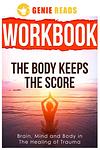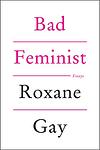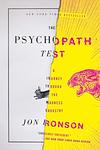The Greatest "Psychological, Nonfiction" Books Since 1900
Click to learn how this list is calculated.
This list represents a comprehensive and trusted collection of the greatest books. Developed through a specialized algorithm, it brings together 300 'best of' book lists to form a definitive guide to the world's most acclaimed books. For those interested in how these books are chosen, additional details can be found on the rankings page.
Genres
The Psychological genre of books typically explores the inner workings of the human mind and emotions, often delving into complex and sometimes disturbing psychological states. These books may focus on mental illness, trauma, relationships, or personal growth, and often challenge readers to confront their own beliefs and perceptions. Psychological books may be suspenseful, thought-provoking, and emotionally intense, offering readers a deep and often unsettling glimpse into the human psyche.
Countries
Date Range
Reading Statistics
Click the button below to see how many of these books you've read!
Download
If you're interested in downloading this list as a CSV file for use in a spreadsheet application, you can easily do so by clicking the button below. Please note that to ensure a manageable file size and faster download, the CSV will include details for only the first 500 books.
Download-
26. Lo Que No Tiene Nombre by Piedad Bonnett
The book is a poignant and deeply personal memoir that delves into the heart-wrenching experience of a mother grappling with her son's severe mental illness and eventual suicide. Through a raw and honest narrative, the author explores the complexities of her son's struggle with depression, the impact of his condition on their family, and the profound grief that follows his tragic death. The memoir serves as a meditation on loss, love, and the often misunderstood nature of mental health, offering a touching tribute to her son while also shedding light on the broader issues surrounding mental illness and the challenges faced by those who suffer from it and their loved ones.
-
27. The Body Keeps The Score by Bessel van der Kolk
This book delves into the complex effects of trauma on the mind and body, exploring how traumatic experiences can alter an individual's biology and brain chemistry, leading to lasting psychological and physical consequences. The author, a renowned expert in trauma, integrates clinical case studies with scientific research to demonstrate how trauma reshapes the brain's wiring, particularly areas dedicated to pleasure, engagement, control, and trust. The book also offers hope by presenting advances in treatment, including innovative therapies that help patients reclaim their lives, suggesting that recovery is possible through understanding the science of trauma, mindfulness, and reconnection with one's body.
-
28. Hunger by Roxane Gay
"Hunger" is a powerful memoir that delves into the complex relationship between the author's body and her experiences of trauma, shame, and self-worth. Roxane Gay fearlessly explores the physical and emotional implications of living in a world that often judges and marginalizes individuals based on their appearance. Through her raw and honest storytelling, she invites readers to confront their own biases and challenges societal norms, ultimately advocating for self-acceptance and compassion.
-
29. The Psychopath Test by Jon Ronson
This book explores the complex world of psychopathy, delving into how the condition is diagnosed and what it means for both individuals and society. Through a series of intriguing interviews and encounters with people labeled as psychopaths, as well as with those involved in identifying them, the author investigates the validity and impact of the psychopath diagnosis. The narrative raises critical questions about the reliability of the psychopath test, the nature of mental health diagnosis, and the ethical implications of labeling someone as a psychopath, all while maintaining a balance between humor, skepticism, and empathy.
-
30. Explaining Humans by Camilla Pang
"Explaining Humans" is an insightful and thought-provoking book that explores the complexities of human behavior and neurodiversity. Written by Camilla Pang, a neurodivergent scientist, the book offers a unique perspective on understanding the world through the lens of autism and ADHD. With a blend of personal anecdotes, scientific research, and philosophical reflections, Pang delves into topics such as emotions, social interactions, and the pursuit of knowledge, providing readers with a deeper understanding of what it means to be human.
Reading Statistics
Click the button below to see how many of these books you've read!
Download
If you're interested in downloading this list as a CSV file for use in a spreadsheet application, you can easily do so by clicking the button below. Please note that to ensure a manageable file size and faster download, the CSV will include details for only the first 500 books.
Download



